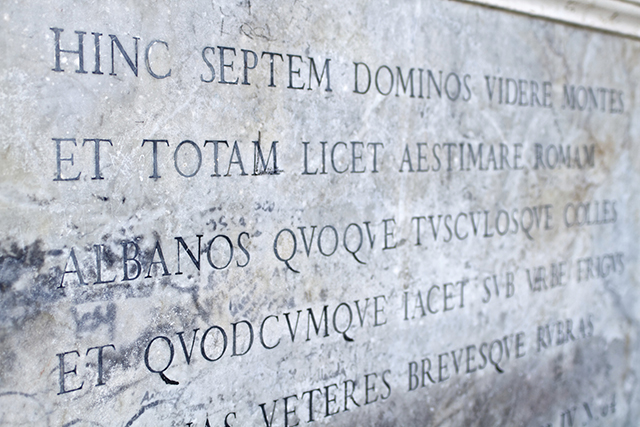If you have too often been confused by the language in a legal opinion issued by a court of law, then you may hope that the U.S. Supreme Court accepts a petition for certiorari filed on Feb. 7 by Jerral Parris of Altamont, TN, against Cummins Power South, in a dispute over boat repairs. Parris claims he is being subjected to “archaic discriminatory bias” and that his rights under the Fifth and Fourteenth Amendments are being violated.
The lawyer for Cummins Power South asked a trial judge to dismiss Parris’s second complaint on the grounds of res judicata and collateral estoppel, since a court had already dismissed Parris’s first complaint about the same boat repair dispute. Because Parrish “did not understand the meaning of the words,” he claims he “was unable to respond with arguments to the contrary.” This use of a “dead language” (Latin) supposedly deprived Parris of “his Constitutional Rights to Due Process, Equal Protections and clearly a fair hearing where he could defend himself.”
Parris, who drafted this petition for certiorari (sorry about that Latin phrase), refers to himself as a “pro se Plaintiff,” apparently unaware that at the same time that he is complaining about the use of certain Latin terms like res judicata, he is using a Latin term: pro se. He says that the “terms and phrases” used by the opposing counsel in his case were “confounding, confusing, stupefying words,” an apt description that certainly accurately describes some of the legal briefs I have seen filed with the Supreme Court in other cases, although perhaps not quite for the reasons that Parris believes.
Parris says there “is no point to the continued use of Latin in the Courtroom other than the continued propagation of the legal profession, creating a place where no man dares to tread (at least without an attorney).” He wants an order from the U.S. Supreme Court that “Latin no longer be used in the Courtroom.”
Parris also asks that lawyers be appointed for all persons who can’t afford an attorney in civil cases. That is required, he contends, because of the “secret handshake – backroom password – wink and nod meaning” of terms like res judicata and collateral estoppel that pro se plaintiffs like him can’t understand. He says this situation is similar to courts providing Spanish translators to make sure defendants understand what is going on in the courtroom. According to Parris, “when all parties to an action are not on equal footing, at a minimum, everyone should understand all that is being said in his presence.” He wants this “endemic prejudice” stopped statim (oops, sorry, I mean, immediately).
Will the Supreme Court take up this opportunity to order lawyers and judges “to communicate in ‘plain English’ to protect the interest of justice and not make the courtroom a secret club exclusively for the generation of profits” as Parris frames the question presented? Only time will tell. Hopefully, for Parris’s sake, the Court won’t use any Latin terms when it disposes of his petition.


























